Philip Glass and the Philip Glass Ensemble in the Ostrava GONG Auditorium on August 16 from 6 to 11 pm
(pierwsze wydanie reportażu, zdjęcia nie do końca poukładane - ale dobra wiadomość to szybka wiadomość; wkrótce uzupełnione o mój tekst - sprawdzaj codziennie!)
August 16, 2013
18:00 Multifunctional Auditorium GONG, Lower Vítkovice, Ostrava, Czech Republic
Philip Glass: Music in 12 Parts (1971-74)
Performed by Philip Glass & the Philip Glass Ensemble
Music Director: Michael Riesman
Sound Design: Kurt Munkacsi
Music in Twelve Parts (1971-74) is a piece that normally requires three concerts to be performed. Composed over the course of four years, it marks a milestone in Glass’s compositional output, and is a landmark work of New York minimalism. The piece uses a vocabulary of techniques developed throughout Glass’s career up to that time, which have become characteristic of his style. The evening-length piece represents – according to Glass himself – the culmination of his early period.
There are a few living composers who have left a lasting influence on music. Philip Glass is one of them. Hearing Music in Twelve Parts (1971-75) live, with the composer directing the performance, is an once-in-a-lifetime opportunity. This is the only performance of Music in Twelve Parts in Central Europe this year.
The role of Philip Glass (age 76, born 1937) in the performance of Music in Twelve Parts irreplaceable. During the 3hr. 20min. of music, Glass determines not only the tempo of the piece, but also intuitively cues the ensemble, which moves from one musical nucleus to the next. The score is not publicly available, and the piece has never been performed by anyone other than Philip Glass and his Ensemble.
Music in Twelve Parts was composed for The Philip Glass Ensemble, which was founded in New York in 1968. They have been performing the piece since its premiere in 1975 at Town Hall. The virtuosity of the piece and the physical demands of the music, spanning a 5-hour event, will result in fewer future performances. Experiencing Music in Twelve Parts is as rare an event as attending other large-scale masterpieces of new music, such as Gruppen for 3 orchestras by Karlheinz Stockhausen – only staged once the Prague Spring festival in 1999.
Music in Twelve Parts was composed immediately before the opera Einstein on the Beach, created in collaboration with Robert Wilson. Einstein on the Beach just received the 2013 Laurence Olivier Award for the best new opera production.This only (and first) performance of Philip Glass Ensemble in the Czech Republic is part of Ostrava Days 2013: New Music Institute and Festival (August 12–31, 2013). Mr. Glass will also participate at Ostrava Days as a lector. Glass took an active part in New York’s “downtown scene” of the 1970s, which included many composers who continue, to this day, to have close professional and often personal relationships, such as Petr Kotík, Christian Wolff and Phill Niblock. They all will meet again at Ostrava Days 2013.
[http://www.newmusicostrava.cz/en/current-events]
plakaty w Ostrawie
konferencja prasowa w hotelu Mercure
Philip Glass, wybitny kompozytor i pianista amerykański, czołowy twórca minimalizmu
Charlemagne Palestine (Chaim Moshe Tzadik Palestine, Charles Martin), ekscentryczny muzyk z kręgu minimalizmu
Philip Glass, Charlemagne Palestine, Petr Kotik Artistic Director of Ostrava Days
Jon Gibson, kompozytor, flecista i saksofonista z Philip Glass Ensamble
koncert w Ostrava GONG Auditorium - sali widowiskowej urządzonej w wielkim zbiorniku gazu na terenie Dolnych Witkowic. Na zdjęciach także industrialne otoczenie.
Charlemagne Palestine w pozie kontemplacyjnej
Otoczenie sali widowiskowej Gong - na unikalnym terenie przemysłowym, obejmującym kompletny ciąg produkcyjny stali: kopalnia węgla, koksownia i huta - w olbrzymim zbiorniku na gaz (taki jak w gazowniach) o średnicy 70 metrów urządzono salę widowiskową wg projektu sławnego czeskiego architekta Josefa Pleskota, architekta całego projektu rewitalizacji obszaru przemysłowego Dolne Witkowice.









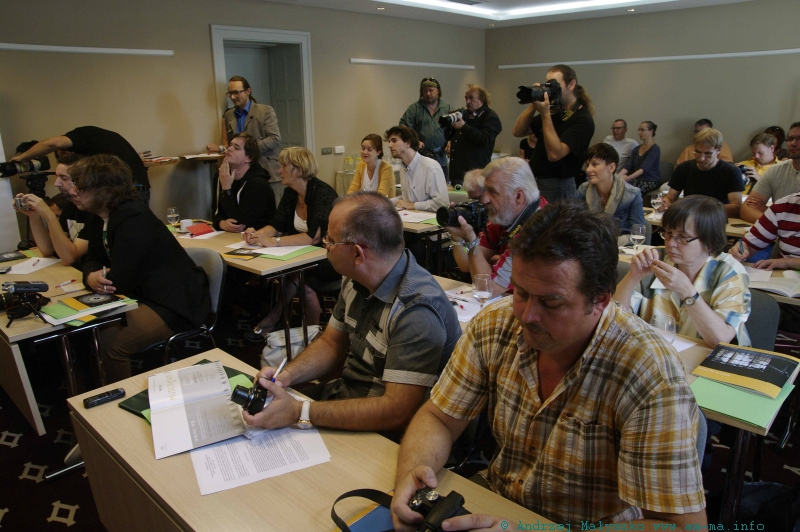

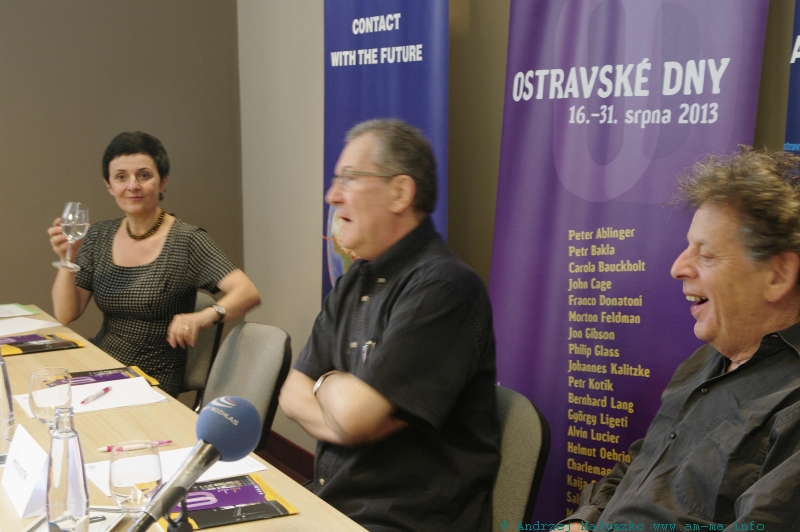







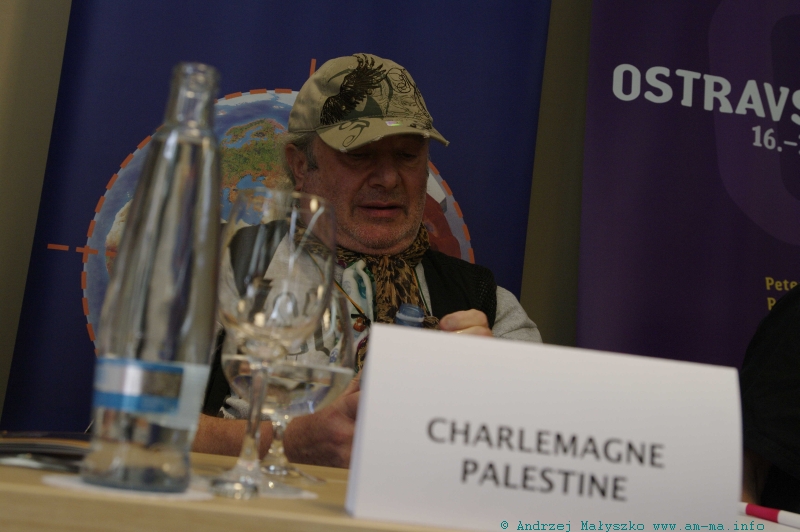











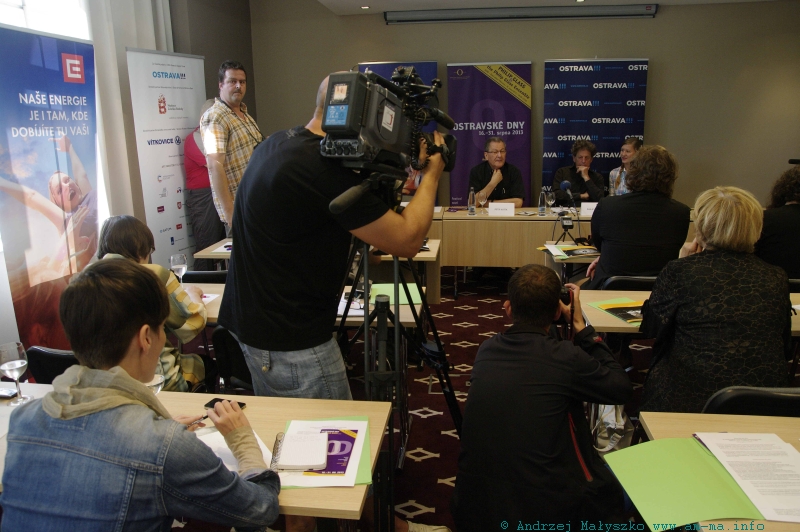







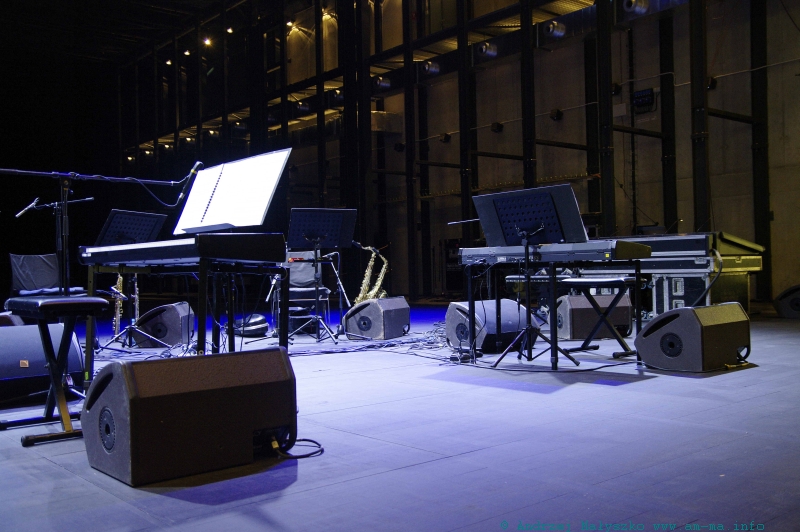



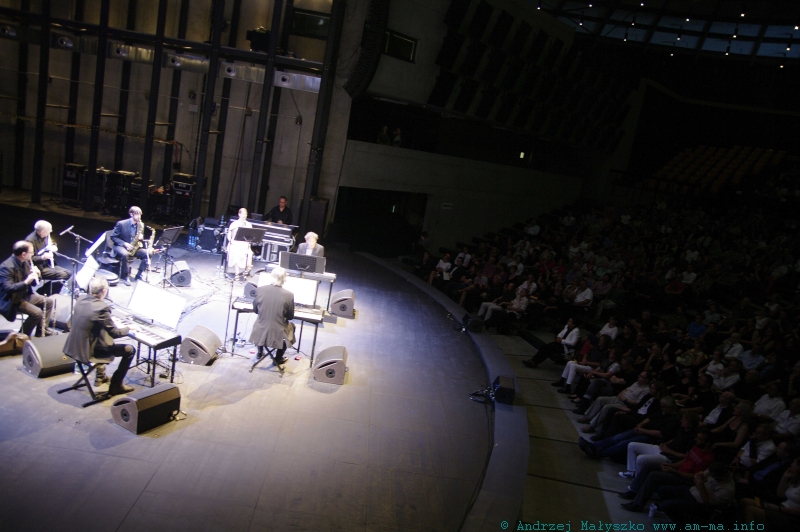
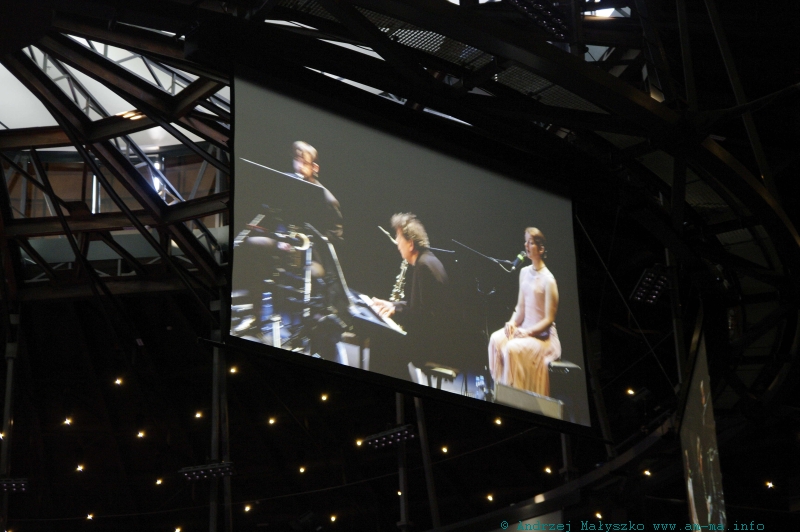
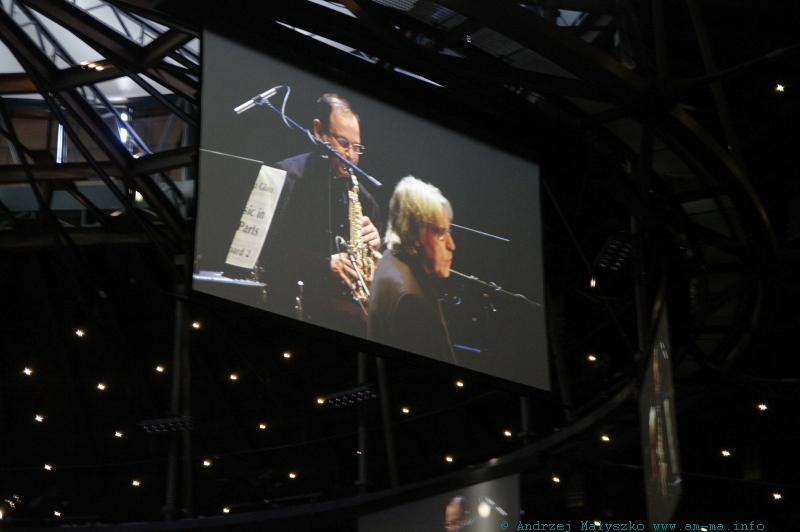



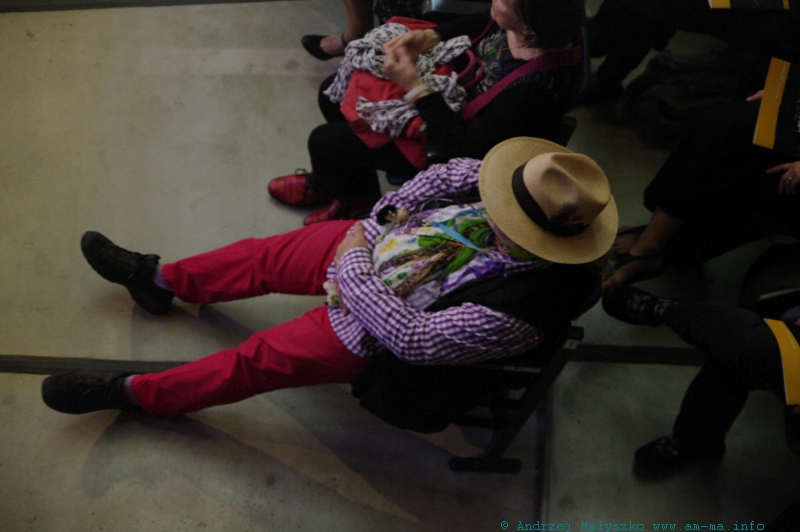


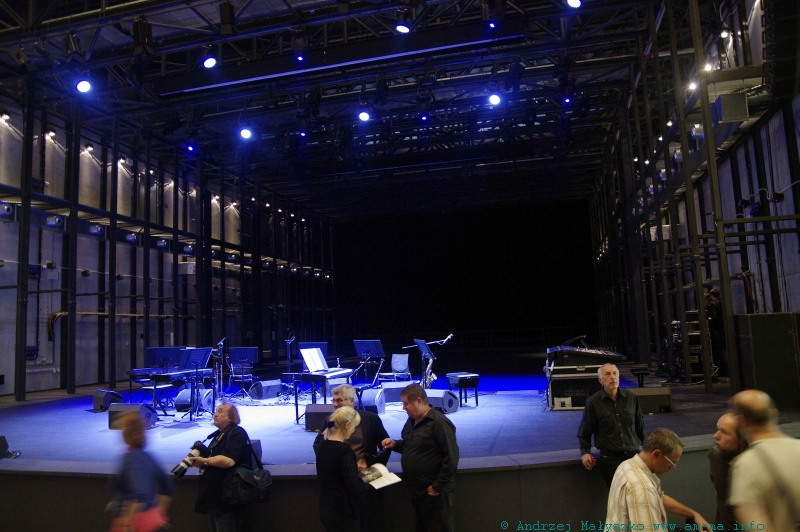











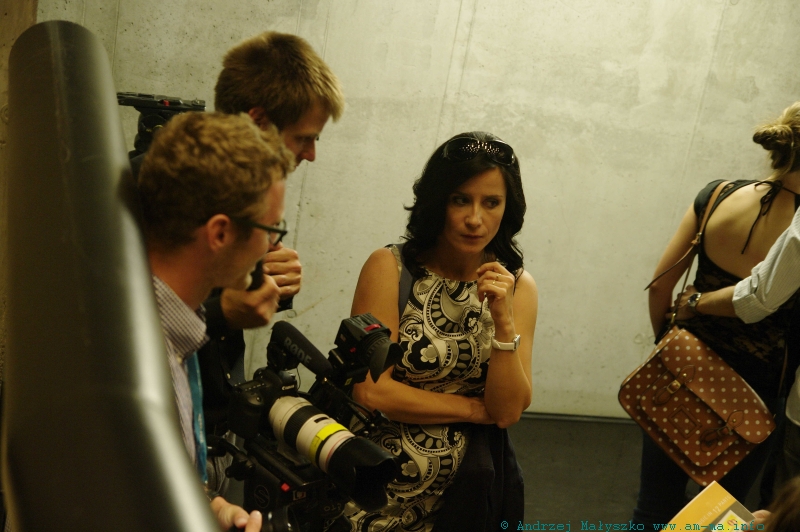











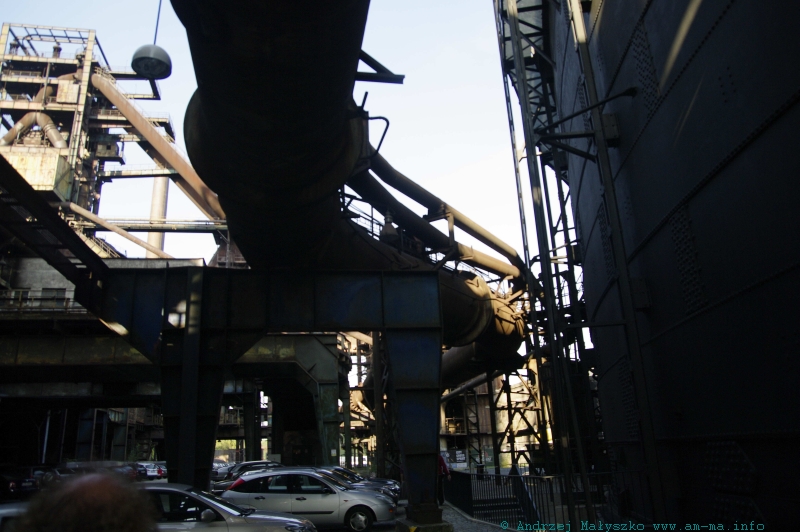



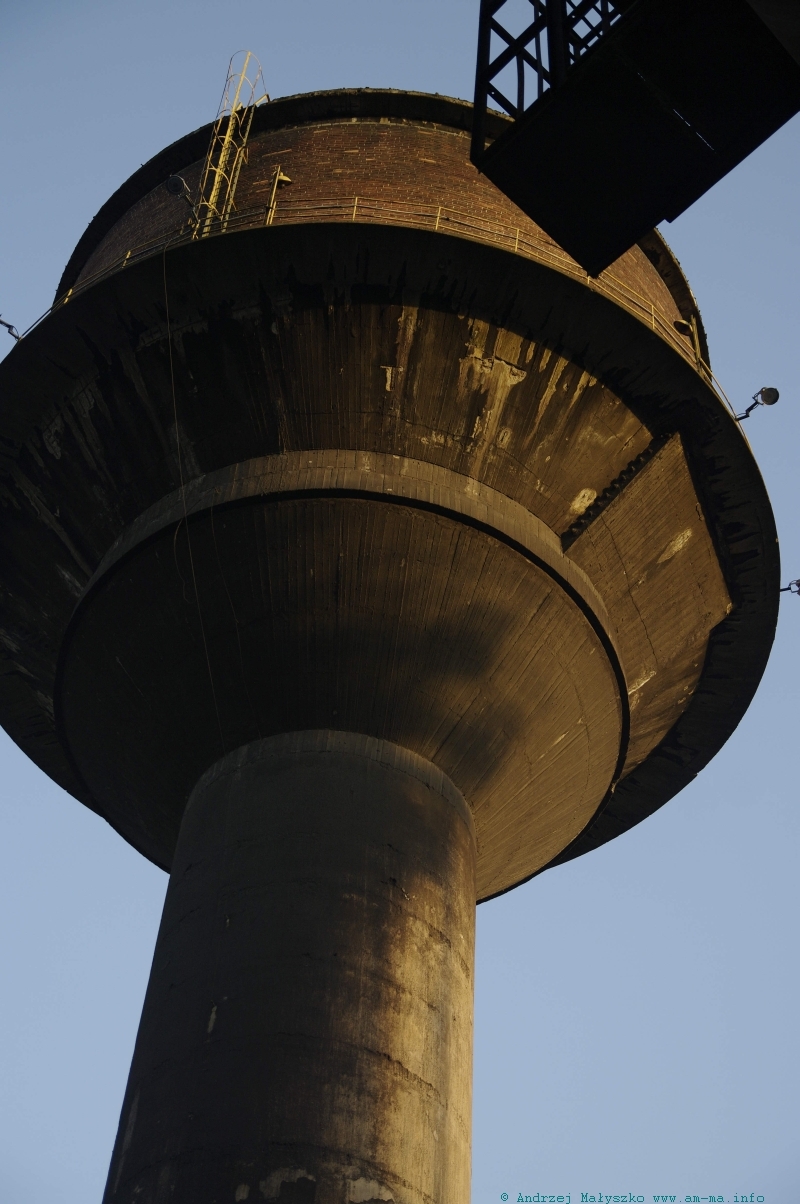



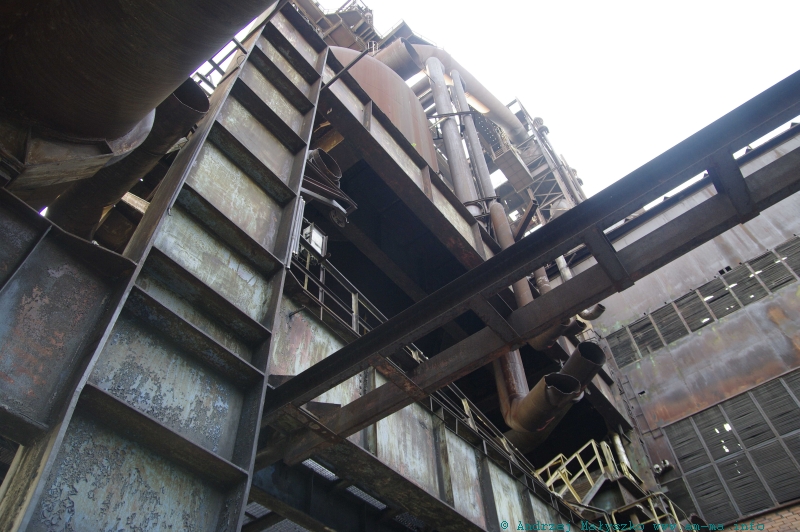











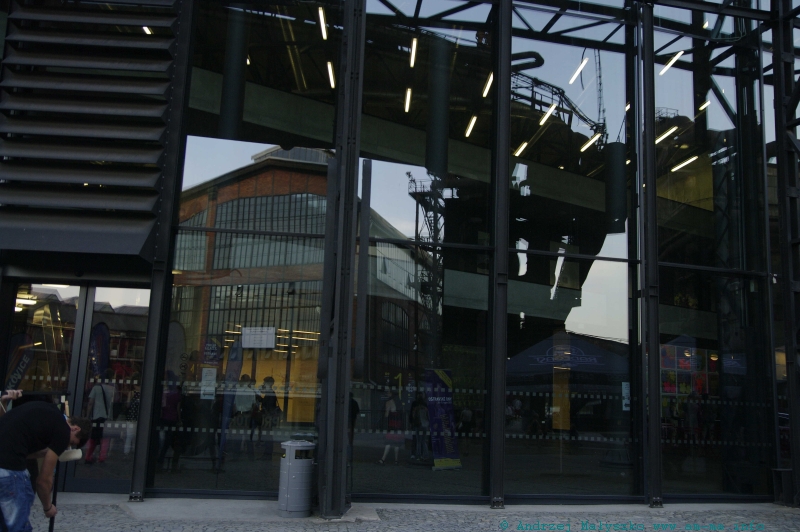
Brak komentarzy:
Prześlij komentarz